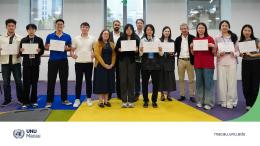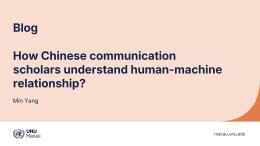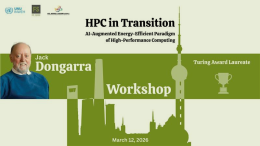One of my interests is the science of making decisions with many objectives, which often conflict with one another. In 1998, Stephan Heyns and I developed a many-goals framework for decision-making to improve aerospace structures.
The world of decisions with many goals leads us to the world of the Pareto-efficient frontier. This principle recalls the wisdom of Vilfredo Pareto, an Italian sociologist and economist whose ideas transcend economic efficiency and enter the domain of moral philosophy.
Pareto’s principle offers a significant conceptual structure that facilitates comprehension of the inherent compromises in decision-making, particularly when ethical considerations are involved.
Ethical decision-making involves a complex interplay between the imperative to prevent harm and the pursuit of good. In economics, the Pareto frontier is the condition in which no individual can be advantaged without causing harm to another.
When this principle addresses the ethical challenge of pursuing good or preventing harm, it proposes a nuanced strategy that aims to optimize benefits and minimize negative consequences, aiming for a state of balance in which advantages do not compromise the welfare of others.
According to Pareto’s insight, the objective in the intricate interrelation between actions and their consequences for society should not be to attain an absolute state in which only good is pursued, or harm is completely avoided. Absolutes of this nature are usually unachievable and may have unintended implications.
Conversely, the objective ought to be to navigate the realm of ethics while maintaining awareness of the compromises entailed, striving to attain a condition where the advantages for a subgroup do not inflict harm upon others or where the harmful effects are reduced as much as possible.
Examining the Pareto frontier
The Pareto frontier represents the most optimal solutions in a complex multi-goal world where different objectives may contradict each other. The Pareto frontier is the boundary that distinguishes acceptable compromises from those that are suboptimal and thus can be improved.
This is important as we seek optimal solutions to problems such as climate change and sustainable development. Within this Pareto boundary, we encounter resolutions in which improving the advantage of one goal unavoidably necessitates compromising another. One example is the goal of making solar energy available at an affordable rate versus profit maximisation.
Applying this thinking is increasingly important in a complex diplomatic world where slow thinking, even though it might result in a better solution, may result in costly delays, which require an understanding of risk.
Analysing the behavioural economics book, Thinking, Fast and Slow, by Nobel Prize winner Daniel Kahneman within the framework of a Pareto frontier perspective provides a distinct viewpoint.
Consider the contrast between making decisions rapidly and with less precision (System 1) and slowly and with greater precision (System 2). The Pareto frontier outlines the optimal compromises between speed and accuracy, indicating that any advancements made in one aspect will inevitably lead to concessions in the other.
Each decision becomes a negotiation on this boundary, necessitating deliberations on the relative costs of fast action versus engaging in slow, thorough deliberation and the level of risk considered permissible.
Applying this thinking is increasingly important in a complex diplomatic world where slow thinking, even though it might result in a better solution, may result in costly delays, which require an understanding of risk.
Risk aversion
To understand risk, Kahneman and Amos Tversky proposed a prospect theory that states that losses have a more significant psychological impact than similar gains. Accordingly, the emotional distress caused by losing R100 is more intense than the happiness derived from earning R100.
This leads to risk aversion when alternatives are offered as prospective advantages (preferring a sure thing over a gamble) and risk-seeking when confronting potential losses (taking a gamble to try and avoid the loss). Prospect theory explains why rational reasoning does not always govern human reactions to financial decisions, health choices, and diplomacy.
The Pareto frontier presents the limit of optimal solutions in scenarios involving trade-offs. Prospect theory explains how individuals assess and select among the various options. Because of risk aversion and our biased perception of losses and profits, a Pareto optimal solution (objectively superior in a trade-off situation) may subjectively feel inferior to a decision-maker.
The theory of evolution appears to have prioritized risk aversion over reckless pursuit of opportunities due to its crucial role in ensuring survival. Individuals with a low tolerance for risk, who prioritize avoiding danger and protecting their existing resources, have a greater likelihood of surviving long enough to reproduce. Thus, we are here because our ancestors were risk-averse! Therefore, a prudent inclination towards securing immediate survival offered a higher probability of surviving than taking risks on uncertain benefits that may never materialize.
Ethical concerns
The conflict between pursuing profits and promoting social welfare poses a traditional Pareto boundary dilemma. Pursuing pure profit maximisation in a free market economy can result in Pareto optimum results. This means that resources are distributed efficiently, producing the highest possible output.
Nevertheless, this does not consistently ensure a fair allocation or a satisfactory social welfare threshold. Take pollution as an example: a factory that releases harmful substances may be Pareto efficient, but it significantly damages the community’s well-being.
Policies aimed at enhancing social welfare, such as pollution regulations, have the potential to deviate from pure Pareto efficiency by trading off some economic production in favour of improving the general quality of life. An ideal balance on a fluctuating Pareto boundary achieves the continual negotiation between public welfare and profit-seeking.
Localization versus globalization
We can analyse the discussion around localisation and globalisation by considering the Pareto frontier. Localisation emphasizes regional economies and self-reliance, which has the potential to enhance community resilience and decrease the environmental consequences of long-distance transportation.
Globalisation promotes the expansion of free markets and interdependence, reducing costs and offering consumers a broader range of options.
The Pareto frontier in this context illustrates the compromises involved: a completely localized society may sacrifice some efficiencies but foster social advantages, whereas pure globalisation may prioritize output while compromising local stability or control. An ideal solution is likely to be found inside the Pareto boundary, aiming to balance the advantages of localising and the economic benefits of globalizing.
[Pareto's wisdom] serves as a reminder that when striving to make moral decisions, the greatest good is not found at the extremes but rather through the deliberate and contemplative exploration of the middle ground.
The unstoppable progression of artificial intelligence (AI) brings up a striking contrast: great potential mixed with significant risks. As AI systems get more advanced, a complex balance arises — how can we encourage innovation and take advantage of this technology’s benefits while also minimising the potential risks it may pose? This question requires the notion of the Pareto frontier.
To illustrate this, imagine an AI-controlled driverless car designed to prioritize driving efficiency and safety. Optimising speed (efficiency) necessitates more risky choices. In contrast, prioritising absolute security may result in excessively prudent and inefficient driving.
Rejecting AI without thoughtful consideration will result in depriving ourselves of immense advantages. On the other hand, unquestioning AI optimism fails to acknowledge potentially harmful outcomes. Our objective is to find an optimal point that provides optimal AI use for the advancement of humanity while reducing the inherent risks of delegating decision-making to AI, and this depends on the values we adopt.
To conclude, Pareto’s wisdom provides a profound understanding of the ethical dilemmas when balancing preventing harm and pursuing good. This serves as a reminder that when striving to make moral decisions, the greatest good is not found at the extremes but rather through the deliberate and contemplative exploration of the middle ground.
In this realm, compromises between various values and interests are recognized and resolved with compassion, understanding, and a profound dedication to the welfare of all parties involved.
This article was first published by Daily Maverick. Read the original article on the Daily Maverick website.
Suggested citation: Tshilidzi Marwala. "‘Greatest Good’ Exists Not at the Extremes but Through Exploration of the Middle Ground — Pareto," United Nations University, UNU Centre, 2024-02-15, https://unu.edu/article/greatest-good-exists-not-extremes-through-exploration-middle-ground-pareto.






